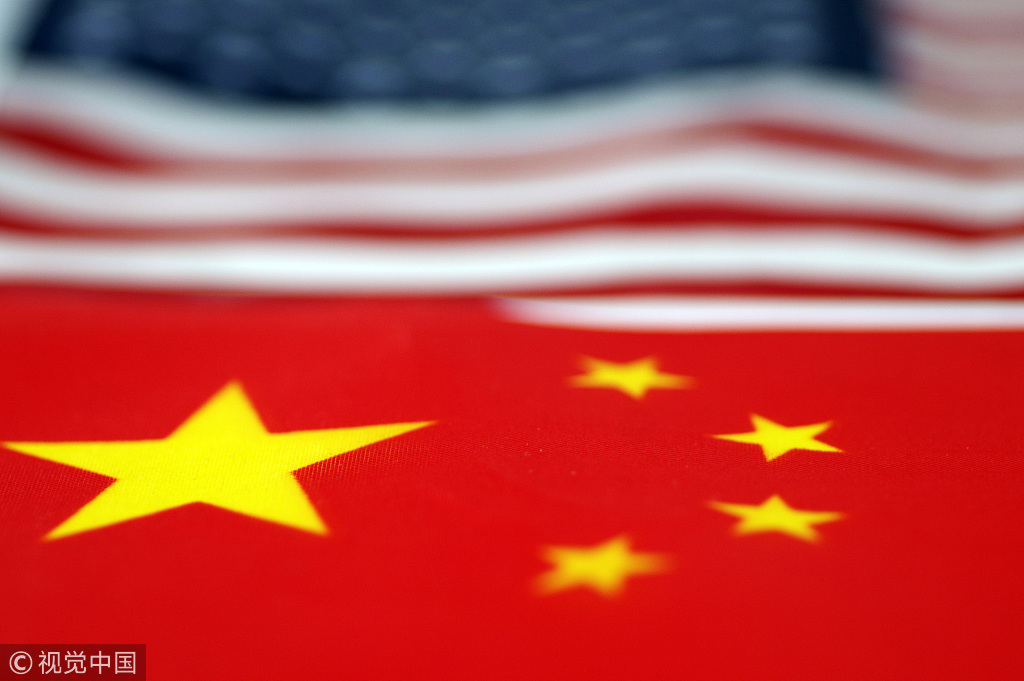When it comes to human rights, US barks up the wrong tree


Some Western countries have spared no efforts in smearing China's human rights record in the Xinjiang Uygur autonomous region, alleging that Beijing monitors ethnic groups there and infringes upon their human rights and religious freedom. Some US politicians have even warned American businesses to think twice before doing business in Xinjiang.
Yet actions speak louder than words. The right to good life is the cardinal principle of human rights, and Xinjiang residents, not foreigners, have the right to speak on human rights issues in the region.
Let us consider some facts. The GDP of Xinjiang increased from 3.9 billion yuan ($567.71 million) in 1978 to 1.2 trillion yuan in 2018, and per capita GDP from 313 yuan to 48,000 yuan, growing 294 and 153 times respectively. The ethnic minority groups' right to use the mother tongue is fully protected and their languages are widely used in legislation, administration, education, publishing, broadcasting, and public affairs. And 52 of the 110 newspapers and 120 of the 200 magazines published in Xinjiang are in ethnic minority languages.
Xinjiang has made the protection and promotion of the fundamental interests of all ethnic groups a priority task, while the central and local governments have cracked down on terrorists, and prevented extremism from spreading. To bring those who have been led astray by extremist propaganda back to the mainstream and to ensure they can find gainful employment, the government has established vocational training centers.
Over the past two years, these training centers have yielded tangible results with the students gradually shaking off the influence of separatism, extremism and terrorism. Plus, no terrorism-related violence has been reported from Xinjiang in the past three years or so.
Consequently, people in Xinjiang have a deeper sense of happiness, gain, and especially security. As for the right to freedom of religion, Xinjiang has 24,400 mosques, meaning one mosque for every 530 Muslims.
How about human rights records of the Western countries, the US in particular? As a self-proclaimed champion of human rights, the United States has a terrible human rights record-the country witnessed 57,103 gun crimes in 2018, which claimed the lives of 14,717 people and left 28,172 injured, among which 3,502 were minors. Also, there is no real religious freedom in the US, which saw increasing anti-Muslim remarks during the midterm elections in 2018.
Besides, the US administration infringes upon citizens' right to privacy-for instance, the Prism program monitors 24x7 the emails, Facebook messages, Google chat records, and Skype calls of all US citizens.
Moreover, the wealth gap in the US is widening, with 1 percent of the American people owning about 40 percent of the nation's wealth while the incomes of ordinary citizens are constantly decreasing. And nearly half of US families are badly off and 18 million Americans live in extreme poverty. The number of hate crimes in the US is at a record high and racial conflicts have increased, and compared with whites, a higher proportion of African-Americans are poor, unemployed and behind bars. African-Americans also have a higher infant mortality rate and shorter life expectancy.
Which shows Western, especially US, politicians and media accuse China of violating human rights in Xinjiang not because they care for the people of the region but because they want to use human rights as a weapon to attack China so they can hide their own atrocious human rights records.
Just as Deng Xiaoping said, some Western countries use issues such as human rights to criticize China, but what they're really after is China's sovereignty. In particular, the US, given its grim human rights record, has no right to criticize China.
If governments and people across the world want to safeguard human rights and promote the global cause of human rights, they should abandon their biases against each other, respect cultural diversities and realize that human rights are really about making people's lives better, which is exactly what the central government has been doing in Xinjiang.
The author is former executive director of the Research and Education Center for Human Rights, Dongbei University of Finance and Economics, and a member of council of China Society for Human Rights Studies. The views don't necessarily represent those of China Daily.

































